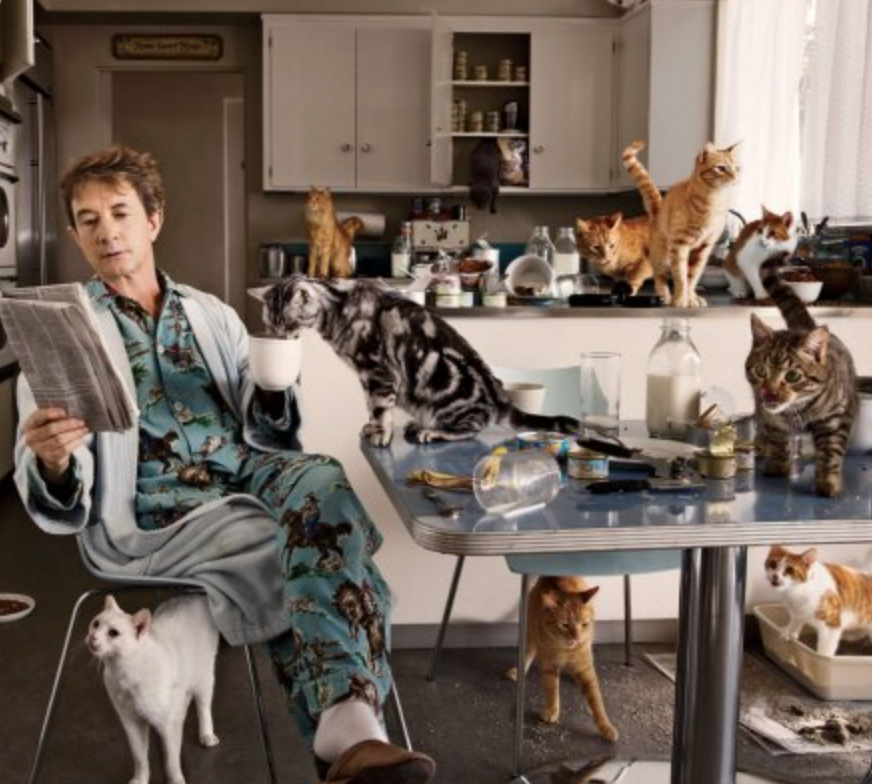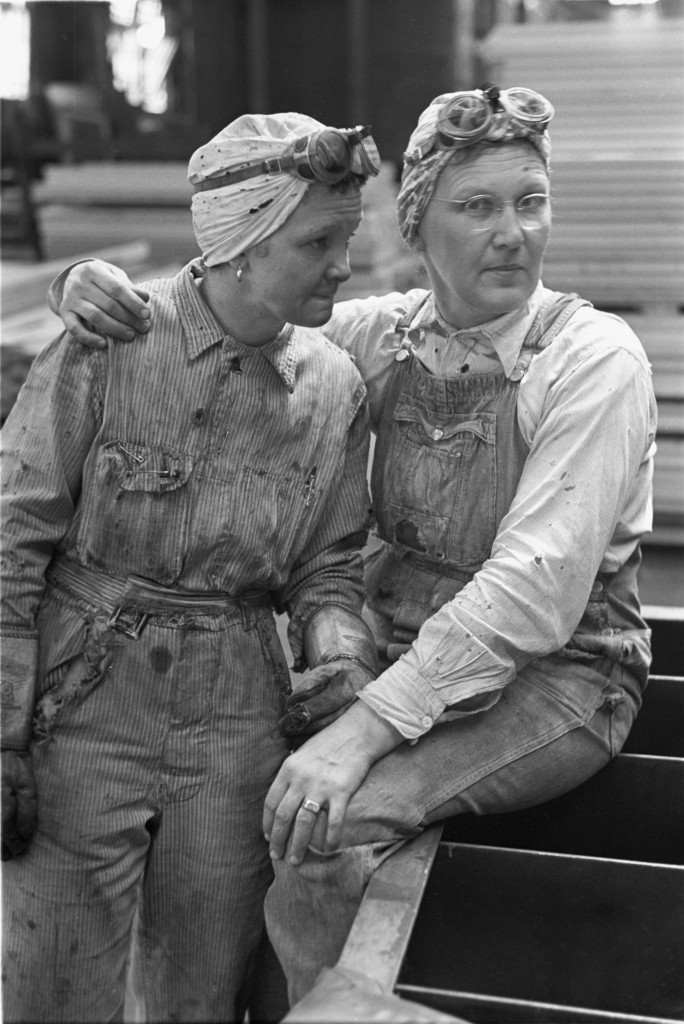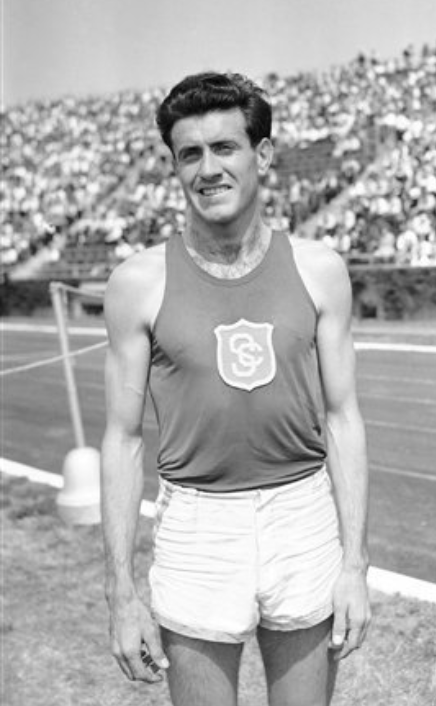Short Ribs
 Though peevish the few times I ever met him (to be fair, press conferences would bring out the crank in Ghandi), Martin Short has a wide reputation for being one of the kindest and most genuine men in Hollywood. Certainly his warm and witty memoir I Must Say justifies that reputation, with wonderfully insidery details of the North American comedy landscape from the ’70s through today. We’re talking stories about Gilda Radner (his first serious girlfriend), John Candy, John and Jim Belushi, Rick Moranis, Jan Hooks, Steve Martin, Alec Baldwin, Julia Louis-Dreyfus, Goldie Hawn, Larry David, Nora Ephron, Jerry Lewis, Billy Crystal, Will Ferrell, Dan Aykroyd, Elaine May, Carol Burnett, Jerry Lewis, Bernadette Peters, Christopher Guest, Bill Murray, Eugene Levy, Catherine O’Hara, Sammy Davis Jr., Diane Keaton, Tom Hanks (back when he was funny), and Andrea Martin–as well as the origins of every member of his (rubber) band of stock characters. The little girl in me who hijacked every elementary school sleepover with an Ed Grimley impression is especially delighted. Short’s greatest charm is a generosity that extends to himself but doesn’t preclude others. The book is replete with the kind of vignettes you always hope take place in Hollywood, even while stories of film producers snorting coke off B movie starlet’s asses seem more likely. An example:
Though peevish the few times I ever met him (to be fair, press conferences would bring out the crank in Ghandi), Martin Short has a wide reputation for being one of the kindest and most genuine men in Hollywood. Certainly his warm and witty memoir I Must Say justifies that reputation, with wonderfully insidery details of the North American comedy landscape from the ’70s through today. We’re talking stories about Gilda Radner (his first serious girlfriend), John Candy, John and Jim Belushi, Rick Moranis, Jan Hooks, Steve Martin, Alec Baldwin, Julia Louis-Dreyfus, Goldie Hawn, Larry David, Nora Ephron, Jerry Lewis, Billy Crystal, Will Ferrell, Dan Aykroyd, Elaine May, Carol Burnett, Jerry Lewis, Bernadette Peters, Christopher Guest, Bill Murray, Eugene Levy, Catherine O’Hara, Sammy Davis Jr., Diane Keaton, Tom Hanks (back when he was funny), and Andrea Martin–as well as the origins of every member of his (rubber) band of stock characters. The little girl in me who hijacked every elementary school sleepover with an Ed Grimley impression is especially delighted. Short’s greatest charm is a generosity that extends to himself but doesn’t preclude others. The book is replete with the kind of vignettes you always hope take place in Hollywood, even while stories of film producers snorting coke off B movie starlet’s asses seem more likely. An example:
Mike Nichols was as funny in person as he was on TV in the 1960s. A few years ago David Geffen invited us both onto his spectacular yacht, the Rising Sun. As we sat down to dinner one night, I took in the sight of all David’s guests–each one famous and accomplished–and decided to initiate a game called “Who Has Met Whom?” Surely at least one member of this crowd had met just about any great twentieth century figure you could think of. “Did anyone here ever meet Eleanor Roosevelt?” Warren Beatty responded, “Actually, I met Eleanor Roosevelt.” From the far end of the table, Mike called out, “Did you fuck her?”
The Progress of Beans
 The light was fading quickly now, but there was enough to see the things they wanted to see—the progress of the next crop of beans, the state of the Namaqualand daisies that Mma Ramotswe had recently planted along the side of the house, the new shrubs put in by the mopipi tree. There was also enough light, Mma Ramotswe reflected, to see the world was not always a place of pain and loss, but a place where our simple human affairs—those matters that for all their pettiness still sometimes confounded us—were not insoluble, were not without the possibility of resolution. She held her husband’s hand. No further words were exchanged, or needed.—Alexander McCall Smith, The Handsome Man’s De Luxe Café
The light was fading quickly now, but there was enough to see the things they wanted to see—the progress of the next crop of beans, the state of the Namaqualand daisies that Mma Ramotswe had recently planted along the side of the house, the new shrubs put in by the mopipi tree. There was also enough light, Mma Ramotswe reflected, to see the world was not always a place of pain and loss, but a place where our simple human affairs—those matters that for all their pettiness still sometimes confounded us—were not insoluble, were not without the possibility of resolution. She held her husband’s hand. No further words were exchanged, or needed.—Alexander McCall Smith, The Handsome Man’s De Luxe Café
Admirable, Slick, ‘Unbroken’
 Louis Zamperini’s death this past July triggered an international outpouring of grief on a scale typically reserved for the death of movie stars or royals. It makes sense. In his own way, Zamperini, who was ninety-seven years old, served as both rock star and royal. An Olympic champion runner in his youth, he survived years of torture in a World War II Japanese prisoner of war camp – not to mention forty-seven days adrift in the ocean after a plane crash – and went on to become an inspirational speaker and youth worker who radiated enough love that he touched even the most ardent of cynics. It’s not surprising that a biopic has been made about his life. It’s surprising that such a biopic hasn’t been made before.
Louis Zamperini’s death this past July triggered an international outpouring of grief on a scale typically reserved for the death of movie stars or royals. It makes sense. In his own way, Zamperini, who was ninety-seven years old, served as both rock star and royal. An Olympic champion runner in his youth, he survived years of torture in a World War II Japanese prisoner of war camp – not to mention forty-seven days adrift in the ocean after a plane crash – and went on to become an inspirational speaker and youth worker who radiated enough love that he touched even the most ardent of cynics. It’s not surprising that a biopic has been made about his life. It’s surprising that such a biopic hasn’t been made before.
“Unbroken,” which covers Zamperini’s life from his inauspicious childhood until his 1945 release from the camps, is Angelina Jolie’s third directorial effort. It is also by far Jolie’s strongest directorial effort – at least in part because brothers Ethan and Joel Coen shaped Laura Hillenbrand’s gripping, eponymous biography into a script so sinewy that it would be hard to screw up its epic story of survival.
The film begins with a bang, literally: We’re on a B-24 sent out on a U.S. bombing raid of a Japanese-held island in the Pacific. Continue Reading →
